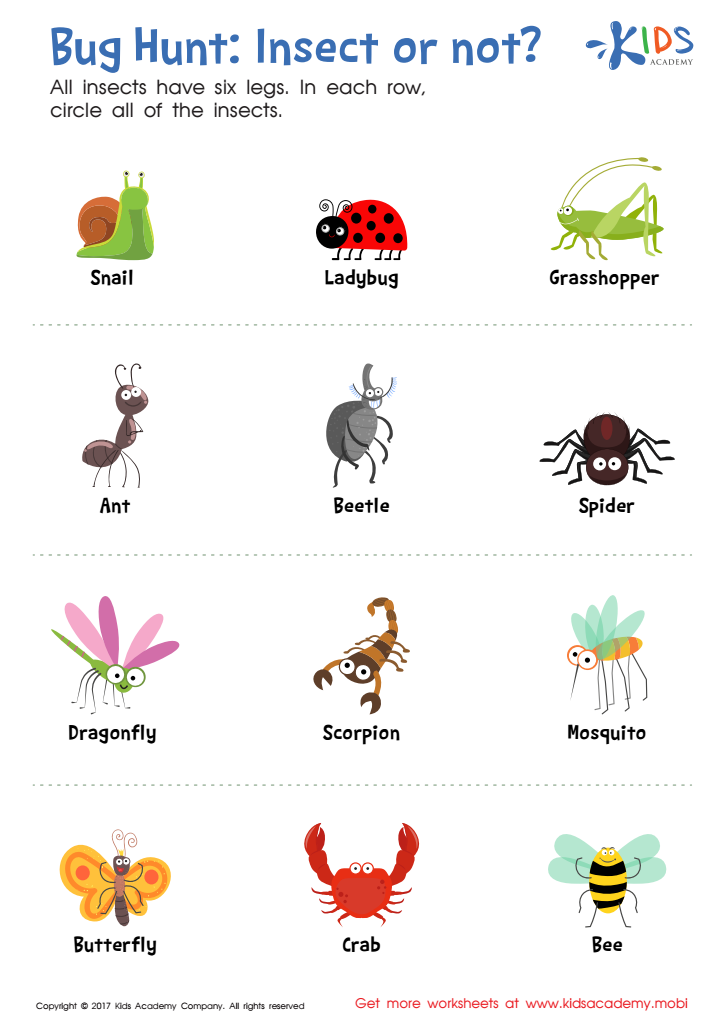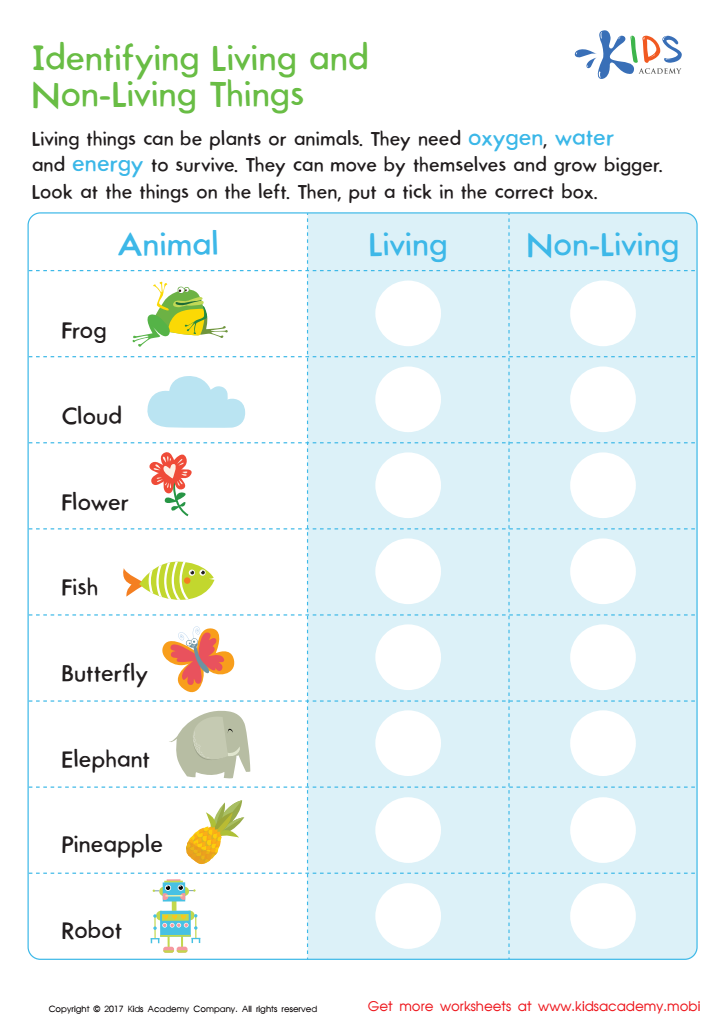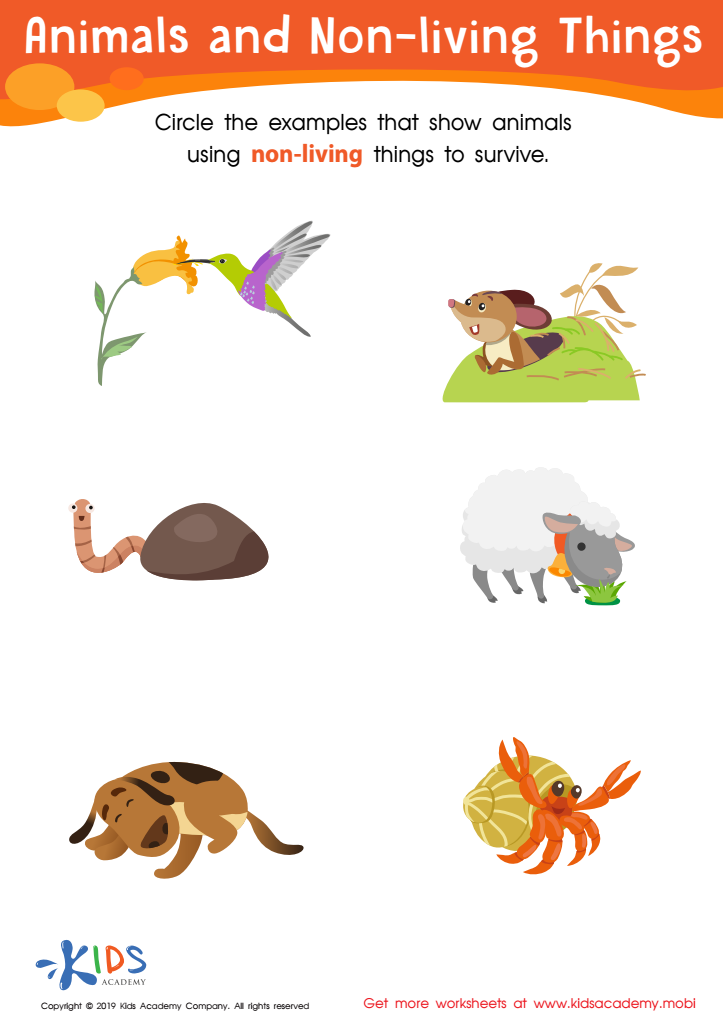Categorization skills Normal Science Worksheets for Ages 6-8
4 filtered results
-
From - To
Enhance your child's learning experience with our Categorization Skills Normal Science Worksheets, designed specifically for ages 6-8. These engaging worksheets encourage young learners to classify and group various elements found in the natural world, fostering critical thinking and observational skills. Perfect for at-home or classroom use, each worksheet features vibrant illustrations and age-appropriate activities that make learning about categorization fun and interactive. By using these resources, children will not only develop their scientific understanding but also improve their ability to organize information effectively. Explore our collection today and watch your child's confidence grow as they master essential categorization skills!


Sorting Animals in 3 Groups Worksheet




Identifying Living or Non–living Worksheet


Animals and Non-Living Things Worksheet
Categorization skills are crucial for children aged 6-8 as they lay the foundation for critical thinking and cognitive development. At this developmental stage, students begin to understand the world around them and how objects relate to each other. Learning to categorize helps children make sense of their environment, enabling them to sort information more efficiently and enhance their memory retention.
By mastering categorization, children develop essential organizational skills that support reading, writing, and problem-solving. For example, when students categorize animals as pets, wildlife, or farm animals, they engage in logical reasoning, developing the ability to classify and differentiate based on attributes.
Moreover, these skills foster creativity and imagination; as children learn to categorize, they begin to see patterns and connections, enriching their storytelling and art projects. Additionally, strong categorization skills promote social development, as they help children understand groups, their roles, and perspectives in classroom dynamics.
Parents and teachers should prioritize fostering categorization skills through engaging activities such as sorting games, science explorations, and art projects. Investing in these skills nurtures well-rounded learners, equipping them with the tools needed for academic success and enhancing their daily interactions with the world.

 Assign to My Students
Assign to My Students















